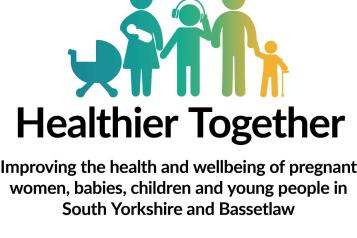People are your partners in care, so involve them in shaping services

As health and care services prepare for another challenging winter, listening to service users and acting on what they have to say may help to relieve some of the pressure on the health system.
'Feedback' might sound like an overused word, and sometimes it carries negative connotations. But building people's confidence in health and care services is essential, so providers shouldn’t shy away from people’s feedback. Instead, they should see it as an opportunity to improve patients' health and care experience and to identify the causes of health inequalities many communities face.
Benefits of engaging people in shaping services
Health and care services need to see people as more than just passive recipients of care. There is an active and central role for them to play as participants in improving our health and care services by sharing their experience of care.
Empowering people to share their experiences makes it easier to identify the most acute needs – helping to direct resources to where they can be most effective. Using feedback to identify gaps and pinch points in service coverage early on can also help mitigate against more significant demands later down the line. This is particularly valuable as we approach winter when health and care services will be under the most pressure to support their communities.
Participation and engagement with communities and individuals covers a variety of activities. There is not a one-size-fits-all approach to gathering people's insights. The important thing is to overcome barriers and ensure that feedback, however it’s provided, is listened to, and acted on.
Participation and engagement processes may be led by health services directly, by Healthwatch and voluntary sector organisations, or by the local community itself. Whether the catalyst is a large-scale programme or one person raising an issue that is important to them, good engagement will always rely on the ability and willingness of health services to work in partnership with the public.
Health and care services will often undertake targeted consultation and engagement about specific issues, which is an important part of the mix. However, through broader and more holistic collaboration, you can learn more about the people they serve and gain a deeper understanding of underlying issues and inequalities.
What opportunities does feedback create?
Feedback also provides many valuable and practical opportunities for practitioners, including options for patient-centred improvements and financial and governance benefits such as more efficient use of financial resources and better decision-making around how services are resourced and delivered.
At Healthwatch, the power of listening and engaging with people is something that we know well. Our network of over 150 local Healthwatch organisations is embedded in local communities across England. As the patients’ champion, understanding the issues affecting users of NHS and adult social care is our bread and butter. Public feedback has helped us to successfully campaign for improvements such as more resources for acute dental care, strengthened mental health support for new parents and a revised Accessible Information Standard. These experience-led campaigns are enhancing health and care services at the local and national levels and contributing to improved quality of care.
Local Healthwatch and other organisations that work closely with people and communities also receive a lot of unsolicited feedback, sometimes including things that people would not want to say directly to a service. This might be because of a fear (or perception) that sharing their experiences could affect their treatment.
So, what can healthcare professionals and managers do to make it easier to benefit from the participation and engagement of your communities?
Key recommendations for supporting health practitioners and health and care managers:
-
Services should set up and publicise avenues by which patients and community members can provide feedback about the care they receive.
-
Managers must encourage and promote a culture of listening to patients and learning from their inputs. Feedback is as an opportunity to improve the quality services and the outcomes in their community.
-
Managers should use feedback to identify health inequalities in their communities – ensuring that services are adaptable and can reach the people facing the most significant barriers to care.


